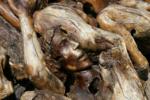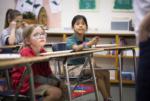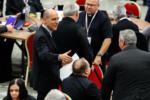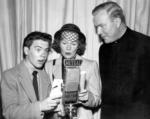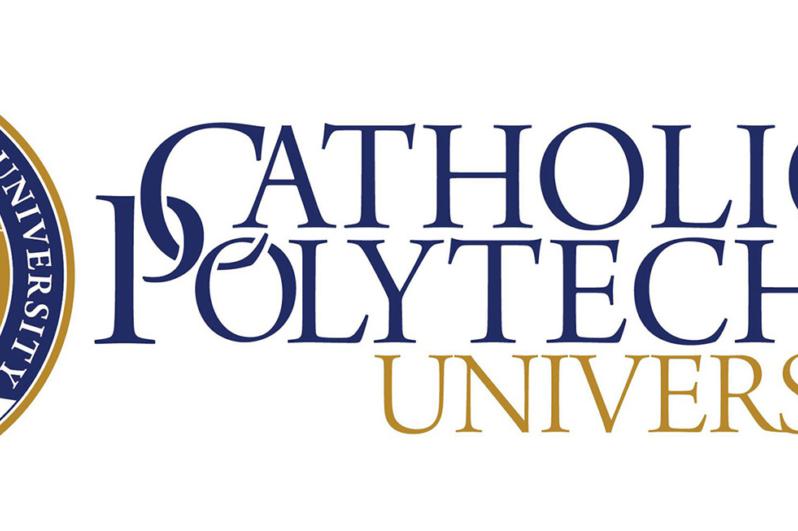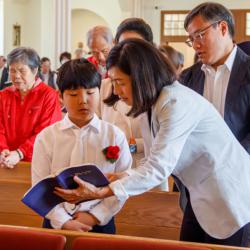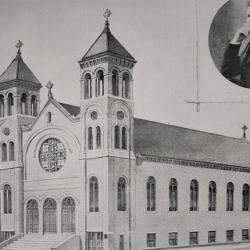New 'deeply Catholic' university focused on science and tech gets ready to launch
(OSV News) -- Catholic Polytechnic University, a new Catholic university focused on STEM education and research, aims to enroll its first class of students this fall. The Los Angeles-area university seeks to provide students a unique "deeply Catholic" postsecondary education that excels in science and technology.
"What we're building is like a Catholic Caltech or a Catholic MIT," co-founder and president, Jennifer Nolan, told OSV News, naming the famous technology research universities, California Institute of Technology in Pasadena, California, and the Massachusetts Institute of Technology in Cambridge, Massachusetts. "We're already presenting at conferences and have people doing research under Catholic Polytechnic."
Nolan, who holds a doctorate in psychology from the University of California, Irvine, said Catholic Polytechnic is the only school of its kind in the country.
"I would say we're the only ones in the United States doing this type of university focused on science and tech degrees," she said. "There are many liberal arts institutions out there that have added on very good science and tech departments. But as far as a truly science and tech-focused university that is deeply Catholic, I don't believe that exists in the United States."
The California Bureau for Private Postsecondary Education gave provisional approval to the university in late December after an approval process of more than two years. Nolan said the university will take steps towards full accreditation.
Catholic Polytechnic is now accepting undergraduate and graduate applications for the fall 2024 semester. The new university will initially offer bachelor's and master's degrees in computer science. Nolan said the university aims to accept 30-50 students for its first year of operations. Its classes will be mostly in-person, with occasional classes taught by professors remotely.
"We have the professors hired and the policies in place to begin this coming fall," said Nolan. She said Catholic Polytechnic aims "to help our Catholic students get the highest paying, high-demand careers and to further science and technology in positive ways."
The university will offer science, technology, engineering and mathematics, or STEM, classes and a core curriculum that includes history, English, philosophy and theology. For Nolan, this means the school will "have the faith built into each class."
Catholic ethics will play a role in the university's science education. Ethical questions like how to view human-animal biological manipulation or artificial intelligence from a Catholic point of view will be a component of each class, though not necessarily the focus of each class.
The university website, catholicpolytechnic.org, also notes the importance of business expertise, business information systems, marketing technology and entrepreneurship.
According to Nolan, the university will strive to combine research and teaching at a high level of innovation and expertise. She noted that some of its professors are from NASA and have military backgrounds.
"We have the capacity of teaching at that level and doing research at that level," she said.
University board members include software developer John Tran, who worked at NASA's Jet Propulsion Laboratory; Michael Stefanini, a senior engineer for Caltech at the Jet Propulsion Laboratory; and software engineering expert Peter McNally, a senior consultant at the Waltham, Massachusetts-based Bentley University's User Experience Center.
Nolan herself has taught at UC Irvine, Loyola Marymount University in Los Angeles and Glendale Community College in Glendale, California. She previously served as chief operating officer and co-founder of a stroke and brain injury rehabilitation center.
Nolan cited the long Catholic tradition in science, saying "the earliest scientists were often Catholics."
Catholic Polytechnic's motto is "Fides et Scientia," Latin for "Faith and Science." The university's website cites inspirational Catholic models like the French mathematician and philosopher Blaise Pascal; the early 20th century Italian doctor and medical researcher St. Giuseppe Moscati; Belgian priest and astrophysicist Father Georges Lemaitre; and Sister Mary Kenneth Keller, a Sister of Charity of the Blessed Virgin Mary and educator who became the first person to earn a computer science doctorate in the U.S.
Nolan said some studies indicate people are leaving the Catholic faith because of a perceived disconnect between faith and science.
"And yet faith and science go hand in hand," she said. "The more you learn of the created, the more you learn of our Creator."

